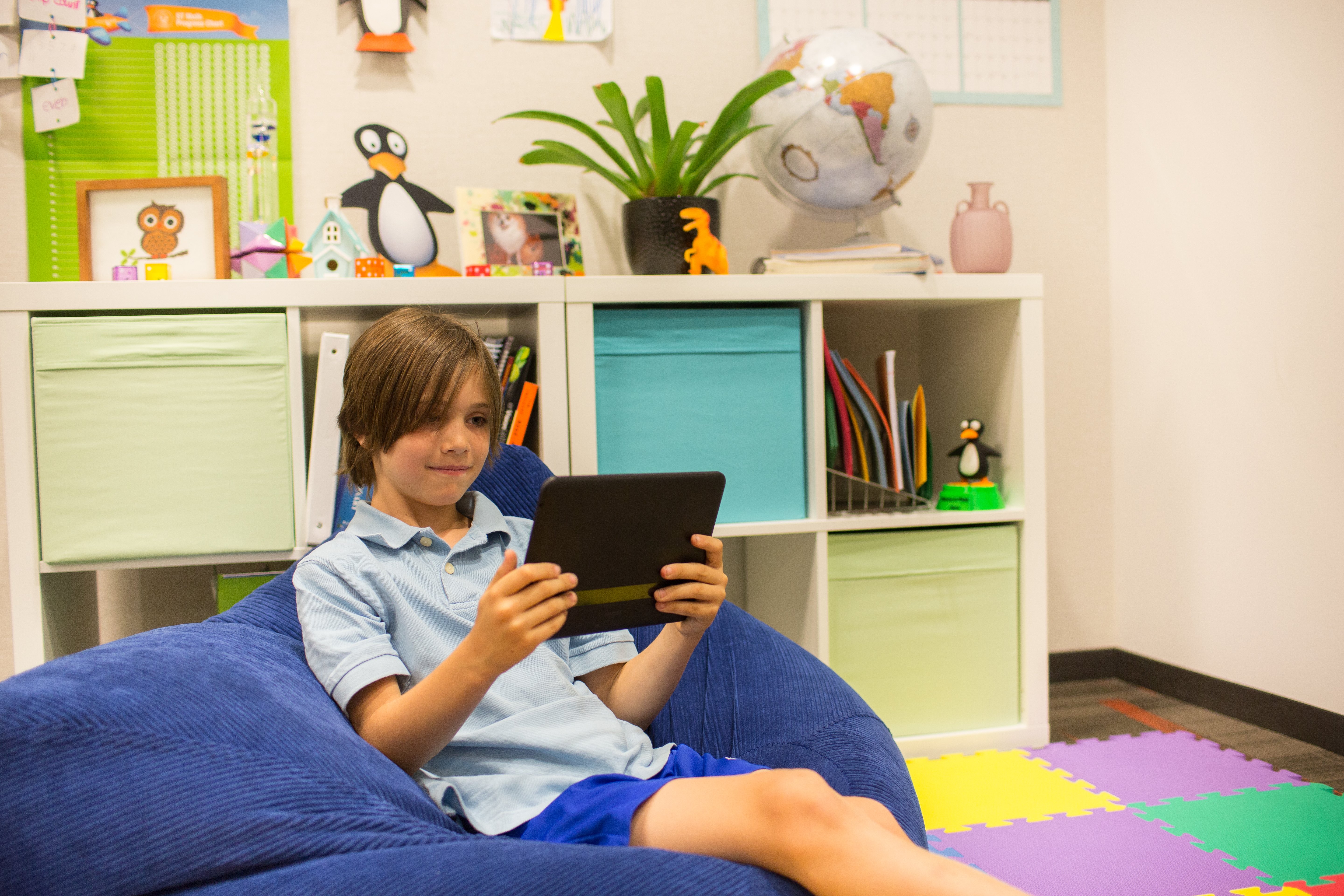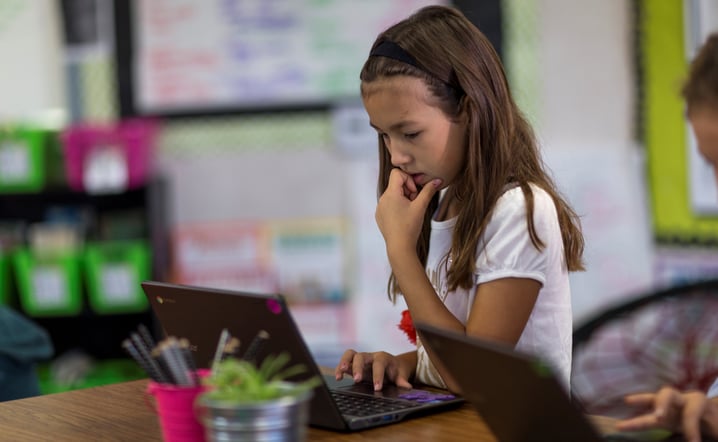
The value of teaching social emotional learning (SEL) skills is indisputable. Decades of SEL research and its effect on academic performance have linked the development of these skills to "higher student achievement, more positive student motivation and more socially acceptable classroom behaviors.”
These skills are central to success and become more important as students ascend to higher levels in school. While teaching these skills is valuable, the practice of infusing them into learning has always been tricky. Then came the Covid-19 pandemic, and exploring SEL in distance learning with students felt almost impossible. With students at home and teachers in their own respective homes or classrooms, opportunities for SEL growth were complicated.
Now, as more and more students return to classrooms, the learning landscape has changed. In a paper published by the Hunt Institute, Katie Rosanbalm, Ph.D., a Senior Research Scientist with the Center for Child and Family Policy at Duke University says, “Social and emotional development was in peril prior to the pandemic. After this time apart, it will take systematic, intentional, and intensive efforts to get social and emotional learning back on track.”

It’s a big problem to solve, but not an impossible one... especially with more tools and resources than ever before available to educators. Today, one of the most effective methods of infusing SEL into instruction is through the use of educational video games—particularly, math video games.
The principles of video game design, when presented in a mathematical context, are highly effective at teaching SEL skills. Instead of learning math in a more traditional way, like copying formulas or solving problems out of a textbook, video games make learning interactive by putting a student’s imagination at the center. Here, the learning environment is completely changed. Students can feel at ease with making and learning from their mistakes.
Video games provide powerful learning experiences that reinforce critical SEL skills such as self-management, self-awareness, and relationship building. In a recent article published by the Education Development Center, mathematics researcher and psychologist Jessica Young explains, “Games [not only] help children identify and learn about patterns, number sense and spatial sense, but they also promote self-regulation, turn-taking, fair play, and learning from mistakes.”
Video games in particular are a great tool for honing SEL skills. Video games can:

Educational game designers know that SEL skills are teachable. With thoughtful facilitation, video games can help students manage emotions, demonstrate sympathy and empathy, and show beneficial behaviors.
“Video games are fine-tuned learning experiences. The challenge of the video game designer is to build a game that isn’t too hard or too easy. Too easy, and the game isn’t much fun to play because it doesn’t require the player to learn. Too hard, and players don’t get enough informative feedback to allow them to persevere and learn how to master the game. The goal is to ensure that the player, armed with the knowledge that the game can be beaten, productively struggles and receives the support they need so that the player can learn and master the game.”
— Matt Feldmann, Vice President of Product, MIND Research Institute
Let’s face it, math is emotional. When things seem to click, all is well. When they don’t—it can be tough. Students who often feel discouraged when they don’t understand a particular math problem may come to the conclusion that math just isn’t for them. But maybe it’s not a question of ability. Perhaps the source of their frustration stems from not being emotionally equipped to keep trying when their way of thinking isn’t validated.
ST Math is different. The program’s learning model helps students regain lost mathematical confidence by reframing these inevitable challenges as opportunities to learn and grow. Based on the principle of productive struggle, students are tasked with applying their own ideas, testing their hypotheses, and adjusting their approach based on the game’s response.
The ST Math user experience incorporates several video game elements that are familiar to most students. First, there’s JiJi—the ST Math penguin. With each new puzzle, students form a personal connection with JiJi as a trusted, patient partner as they progress through the game. Next there is the single objective or “quest” to get JiJi across the screen. No matter what obstacles or objects are in JiJi’s way, the player knows they must critically think about the problem to clear a path so JiJi can cross the screen.
This video talks through how students can build confidence and reach SEL breakthroughs in
ST Math.
While the player is moving through ST Math, each game emphasizes strategy use, feedback, and collaboration to achieve the objective. It is during this time period where students are given the opportunity to simultaneously develop patience, perseverance, and confidence.
“Connecting with students over ST Math has now become more than just an academic exercise for our students. It now provides a therapeutic purpose as well. Of all of the programs we use, it lends itself the most for human connection.”
— David Marks, Educator, Hebrew Academy of Long Beach
In fact, the Journal of Research on Technology in Education (JRTE) published a rigorous study in late 2019 that found that students who used ST Math had higher self-beliefs than students in the control group, and that self-beliefs were associated with positive changes in mathematics achievement. The study also concluded that ST Math’s impact on students’ self-beliefs was strongest for students who started with low mathematics scores.
As we move forward in the Covid-19 pandemic and SEL becomes a more pressing priority in education, students will need the best tools available to learn and reach their full potential. Educational video games are a great solution to help students build deep conceptual understanding of mathematical concepts, all while growing their SEL skills.
If you’re interested in discovering how ST Math can encourage students’ SEL growth, start with a tour of the program or try out some of the games yourself, thinking through the SEL skills you’re building while playing.
Additional Resources:

Parker Erickson was MIND’s Content and Community Specialist. As a digital storyteller, Parker is passionate about building strong communities through technology and social media. Off the clock, you can find him buried in the latest issue of The New Yorker or experiencing different cultures through food.
Comment